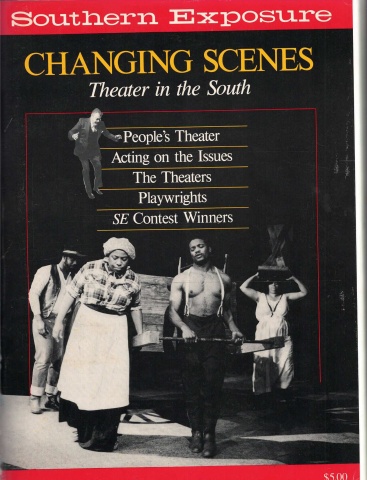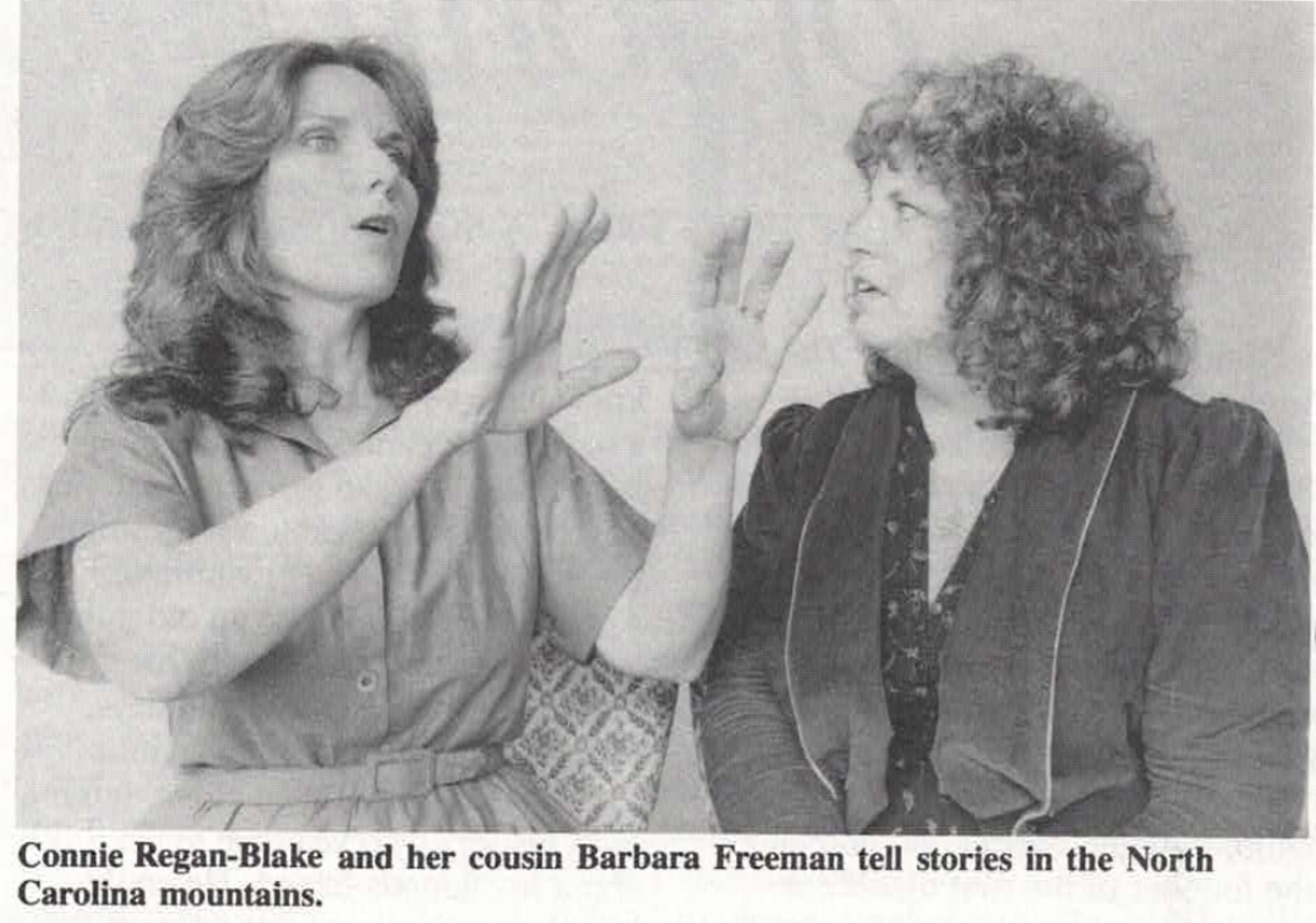
This article originally appeared in Southern Exposure Vol. 14 No. 3/4, "Changing Scenes: Theater in the South." Find more from that issue here.
When Barbara Freeman and Connie Regan-Blake took to the highway as “The Folktellers” in 1975, storytelling was not a widely known career. The Tennessee cousins had been working in the Chattanooga library system, Freeman as a children’s librarian and Regan-Blake as a roving children’s storyteller, so both knew the power of stories. Still, touring full-time — performing tales for adults as well as children — was then a novel idea.
In the early years, finding tellable tales was often like searching for buried treasure. Freeman and Regan-Blake knew where to look but spent much time digging. They found many contemporary gems shelved in the children’s sections of libraries. But perhaps more important, they listened to traditional storytellers whose families had handed down stories from generation to generation.
Once they discovered a story that “spoke” to them, they began the process of making it their own. ‘‘A story comes in through the eyes and ears and goes down through the heart so that we are a part of that story as we speak it,” noted Regan-Blake. “They become like family stories.”
Often a storytelling performance will inspire listeners to share their own family stories, and the Folktellers listen eagerly. The Folktellers are committed to preserving the “bones” of a tale. “We have a real respect for the stories,” Freeman explained, “so if we alter, we do so with a gentle hand.” One of Regan-Blake’s favorites, “Two White Horses,” was a somber old oral story about a premature burial which was put in writing by Elizabeth Seeman, who lived “off Tumbling Creek, off the paved road, off the dirt road, off the rock road” in the Tennessee hills. The story reached Regan-Blake, who “knew instantly it was my story. It’s one of those stories that I don’t tell differently every time — the words are so beautiful, real poetry.” When she told the story at a festival she didn’t know that Seeman was in the audience. “She was thrilled,” recalled Regan-Blake, “that her story was going to start traveling with me.”
Tags
Rachel Stein
Rachel Stein is a writer who lives in Asheville, North Carolina. The Folktellers have produced three storytelling records. (1986)

